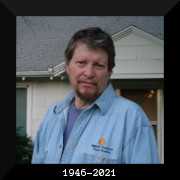Space Cadets—For a Libertarian Future!
by L. Neil Smith
[email protected]
Attribute to L. Neil Smith’s The Libertarian Enterprise
As a veteran science fiction writer, I have been known to make a prediction of the future from time to time. I’ve made some embarrassingly silly misses, such as the booming popularity in America of Brazilian cars, or the advanced technology required for your car to have its own answering machine. But I also predicted the Internet, wall-sized TV/monitors, laptop and tablet computers, computer-aided forensics, and the massive acceptance of .40 caliber weapons.
One San Francisco weekend in the late 1970s, I was among a small handful of delegates (the names Feldman, White, and Grossberg come to mind) to the National Libertarian Party Convention made fun of by the late economist Professor Murray N. Rothbard for insisting that the subject of property rights—and the correlative responsibilities—in outer space needed mentioning in the National Libertarian Party platform. I knew Murray, who was often a short-sighted and toxic little man. He called us “space cadets” who were somehow damaging the dignity and believability of the Party with our irrelevant issue, and tried to laugh us off the National Platform Committee. Unfortunately for “Mr. Libertarian”, this was during the very week that that entire world was worried about whose head Skylab was about to come crashing down on. (It turned out to be Australia—wouldn’t want to hurt no kangaroo.)
Today I’ve got another prediction for you: there will be a Space Patrol, just like in Captain Video and Tom Corbett, Space Cadet and Islands in the Sky. Its first vital task. however, will not be hunting down three-armed aliens (“To life immortal!”) or looking for “The Planet of Dark Green Gold”. It will be doing something about the thousands of objects left in orbit by earlier efforts by the U.S. space program or the activities of other countries. I recently saw a 3-D map of all the potentially lethal garbage, whizzing around in orbit at various multiples of the speed of rifle bullets, and it was as if the Earth were enveloped in its very own Oort Cloud. It’s a wonder that any spaceship or satellite goes undamaged. There’s everything up there from fuel tanks, nuts and screws and fragments of explosive bolts to fantastically expensive Hasselblad cameras stripped of their film (what’s “film”, Daddy?) and abandoned by the homebound Gemini astronauts. People aboard the International Space Station (itself a hunk of flying garbage) had to take emergency refuge in the Soyuz spacecraft parked up there when the folks at Cheyenne Mountain warned them that a piece of junk was headed their way.
It missed them.
Just barely.
This time.
The planet Earth desperately needs some kind of a workhorse spacecraft around which missions can be planned to collect the trash a few hundred pieces at a time. The crew might sort through it, recovering anything of scientific or historical value, then bundle the rest up in chicken-wire and de-orbit it into the Sun—the ultimate backyard incinerator. Whatever tree-hugger first grandly proclaimed “There is no away!” with regard to getting rid of garbage, didn’t take into account two things: the wonderful disposal device that is the Sun, only 93 million miles away (all of it downhill) , and also, if there is really no away, then where are the Clintons and Obamas going to go? (I am reminded by my clever daughter that “Guantanamo Bay” rhymes with “away”.)
There’s a great deal of dangerous, expensive stuff buzzing around out there and the clean-up task could easily last for a century or more, but it could also teach us much of what we need to know about a vastly more important item of business: picking up, destroying, or diverting meteoroids and asteroids on their way to wipe out half the life on Earth.
Again.
(See my 2010 novel Ceres which, in part, is about hunting down asteroids for fun and profit—there’s gold in them thar carbonaceous chondrites!) These are both mundane chores I’m talking about, here, but they need to be done, and they will be, even if they aren’t as exciting and glamorous as mopping up Klingons around Uranus.

Publisher and Senior Columnist L. Neil Smith is the author of over
thirty books, mostly science fiction novels, L. Neil Smith has been
a libertarian activist since 1962. His many books and those of other
pro-gun libertarians may be found (and ordered) at L. Neil Smith’s
THE LIBERTARIAN ENTERPRISE “Free Radical Book Store” The preceding
essays were originally prepared for and appeared in L. Neil Smith’s
THE LIBERTARIAN ENTERPRISE. Use them to fight the continuing war
against tyranny.
My Books So Far
Was that worth reading?
Then why not:
![]()
AFFILIATE/ADVERTISEMENT
This site may receive compensation if a product is purchased
through one of our partner or affiliate referral links. You
already know that, of course, but this is part of the FTC Disclosure
Policy
found here. (Warning: this is a 2,359,896-byte 53-page PDF file!)
